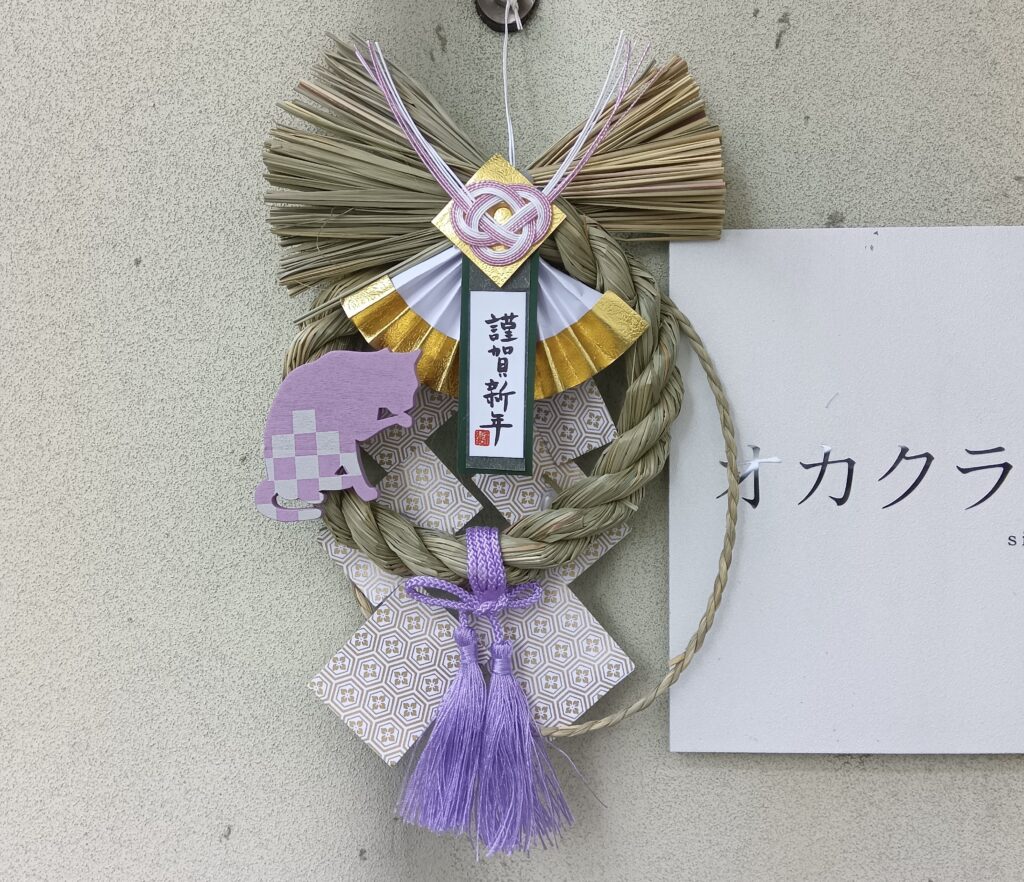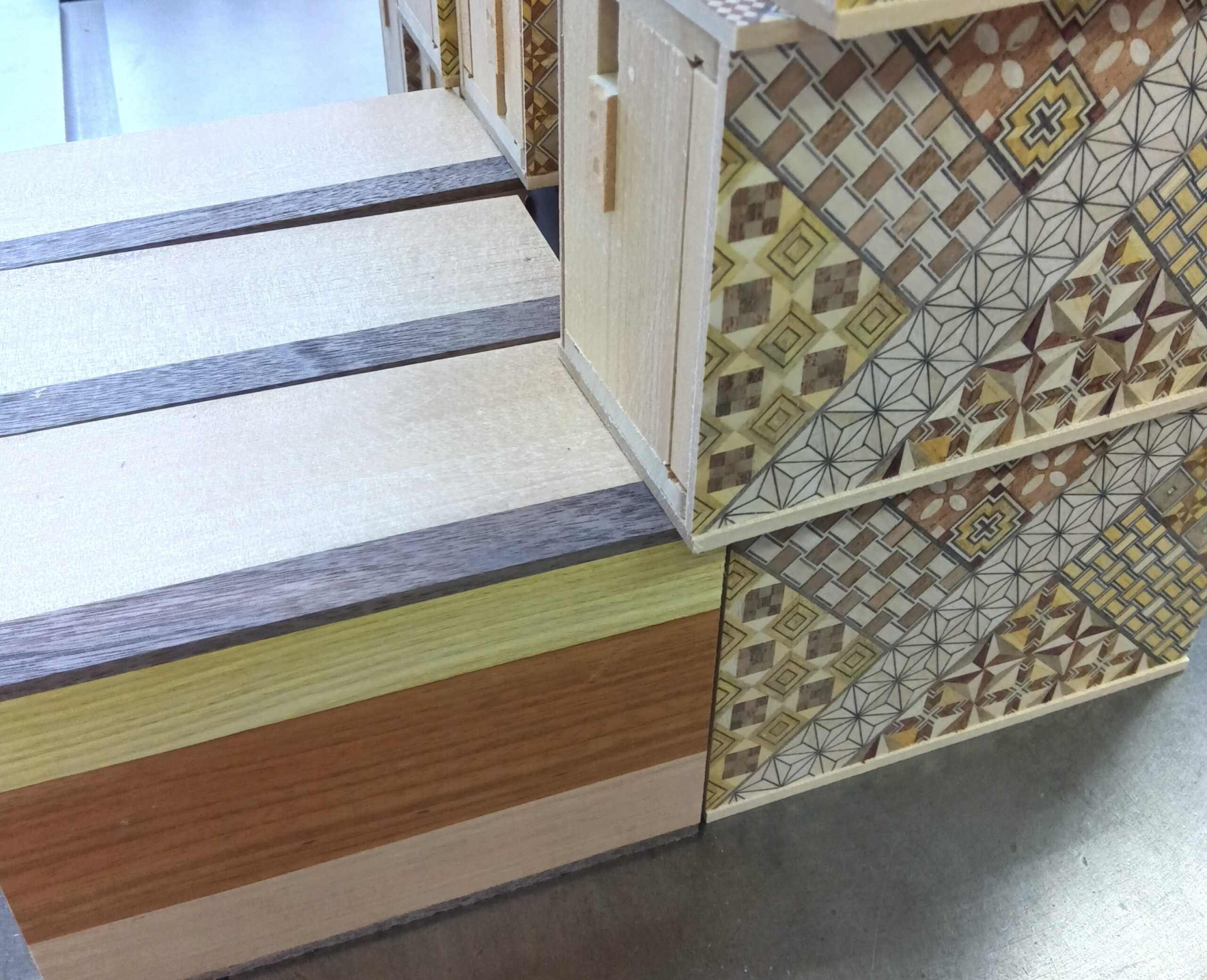30-Dec-2024
Today, I worked on attaching the kannuki panel to the final side of the 5-sun 27-step puzzle boxes, which I started making last week. This time, I’m producing about 30 boxes, including some made from solid wood. This time, I also included three solid wood versions, like the type shown in the photo, in the production.
While I was aiming to complete them by the end of the year, it seems I’ll be one day behind, with the base coating being finished on the 31st. That said, as long as the base coating is done, storing the boxes for a short period shouldn’t cause any significant issues or impact their quality.
During the New Year holidays, I have various tasks aside from production, which will slow down my progress a bit. However, since shipping companies are also closed, I plan to continue production at a steady pace. In Japan, it’s common for both businesses and households to do a “big cleaning” at the end of the year. This involves discarding unused items and cleaning areas that are usually overlooked, all with the aim of welcoming the New Year with a refreshed and positive mindset. Following this tradition, I also tidy up my workshop and perform maintenance on my machines and equipment.
Today, I also put up a Japanese ornament called “Shogatsu-kazari” (New Year’s decoration) in my workshop. This is a Japanese tradition meant to welcome the deities of the New Year. While the timing varies by region, it is generally considered best to put it up on December 28th or 30th. In our area, it’s common to leave the decoration up until January 7th. These ornaments are sold at many stores and come in a variety of designs. Recently, in addition to traditional styles, many unique designs have become popular. This year, I chose one with a cat design. Cats are natural enemies of mice, making them a symbol of a good harvest. In Japan, they are also considered a lucky symbol, known as “Maneki-neko”.
Just one more day left in the year!



